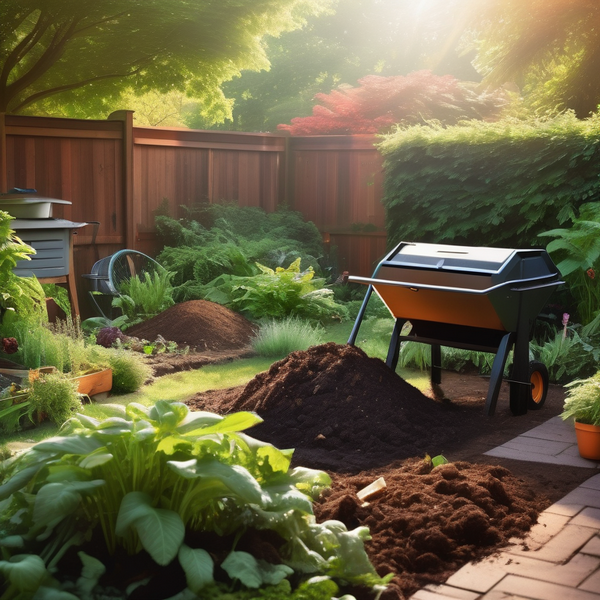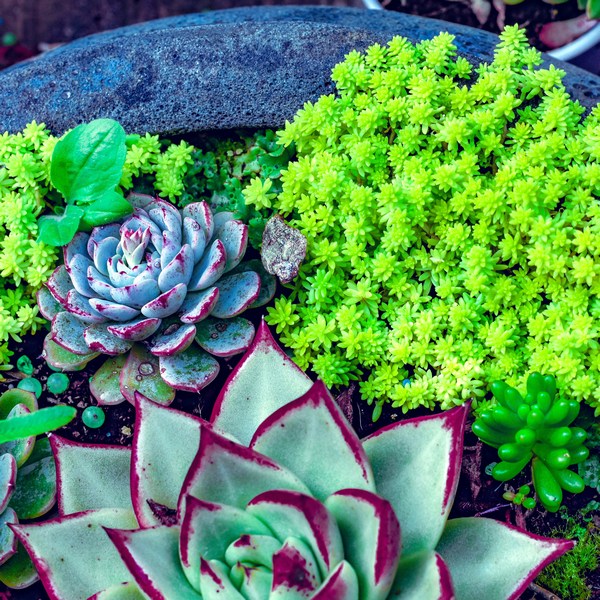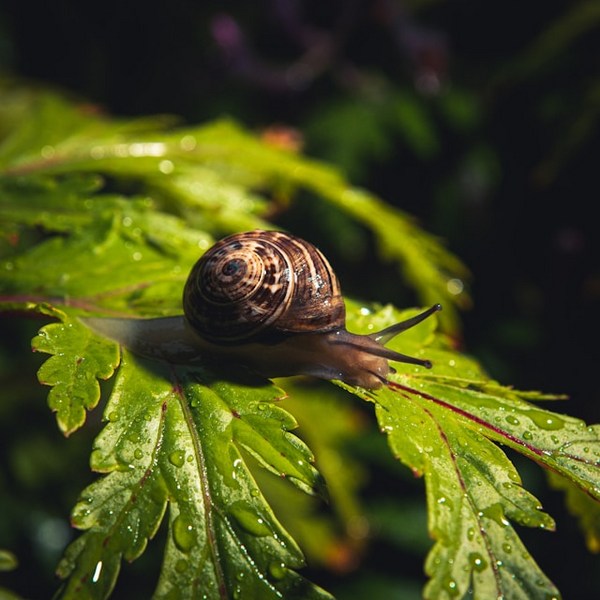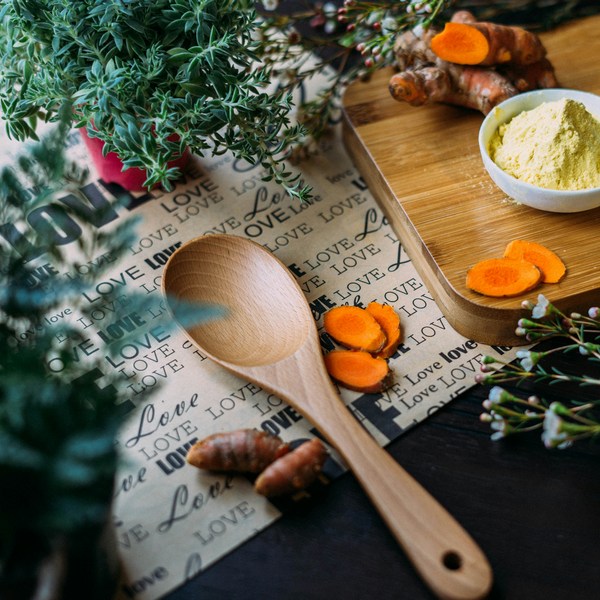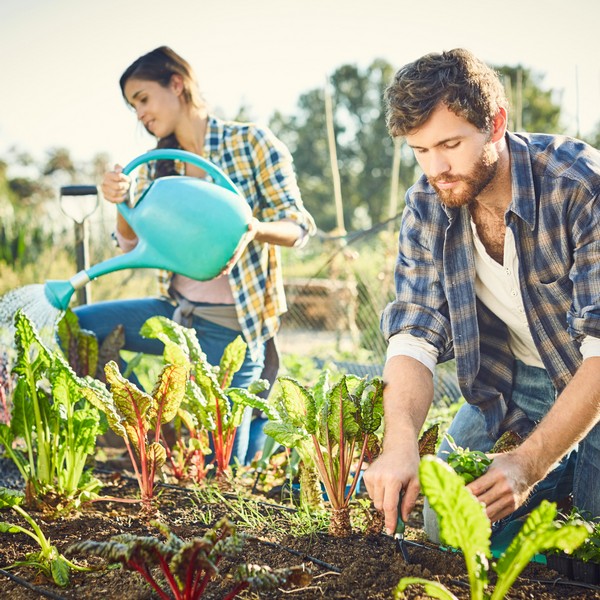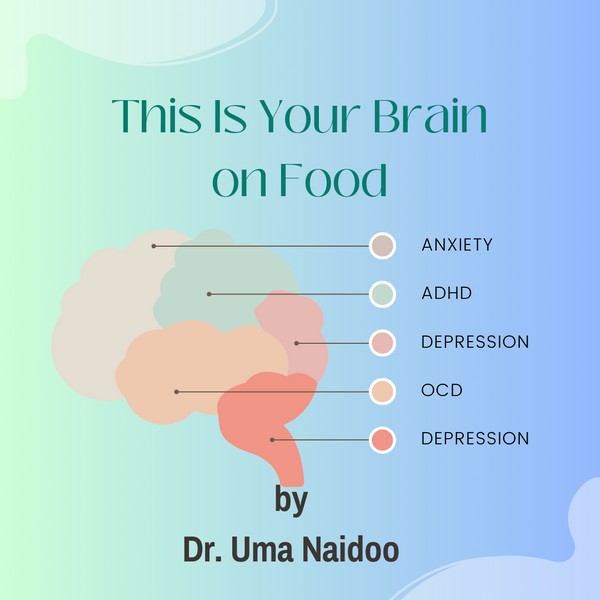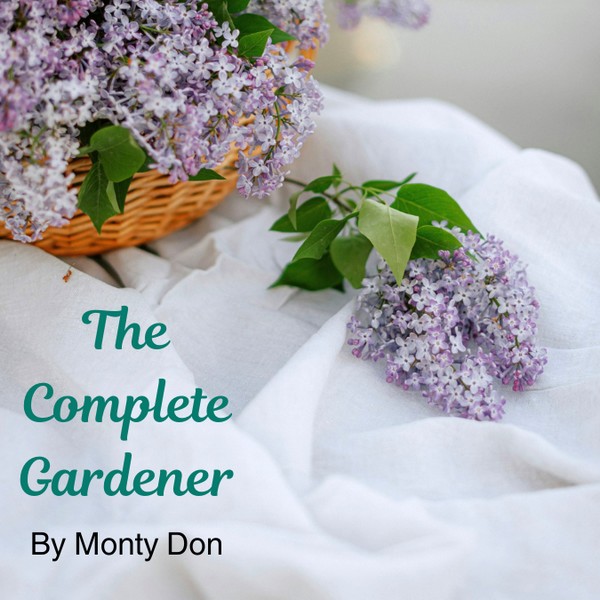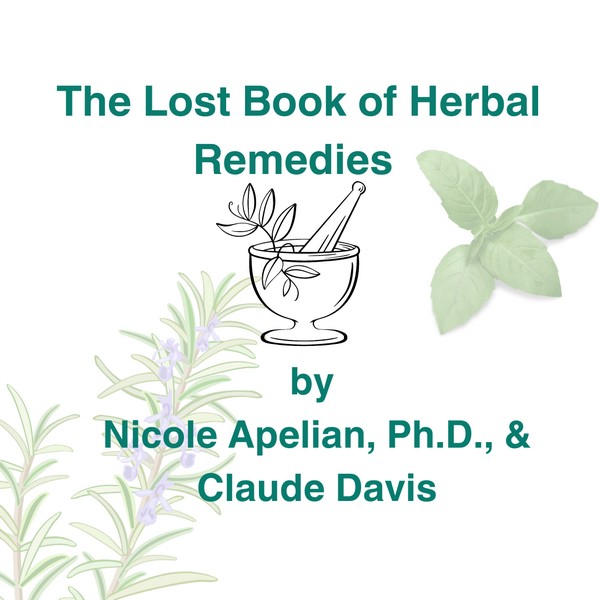Key Highlights
- Gardening activities such as landscaping, planting, and maintaining plants can help reduce blood pressure and improve cardiovascular health.
- Regular gardening can help build muscle, enhance physical endurance, and improve flexibility and balance.
- Gardening is a therapeutic activity that can reduce stress, boost mood, and increase self-esteem.
- Gardening can be a form of exercise, burning calories and providing physical benefits comparable to traditional forms of exercise.
- Home-grown produce from gardening provides nutritional advantages, including access to fresh, organic vegetables and fruits.
- Gardening exposes individuals to soil microbes, which can enhance immune function, and allows for outdoor activities that increase vitamin D levels.
- Gardening is a therapeutic activity suitable for all ages, promoting physical health and an active lifestyle.
Table of Contents
Gardening is not just a hobby or a way to beautify your outdoor space. It is also a physical activity that offers numerous health benefits.
Whether you have a small backyard garden or a large landscape, spending time outdoors, tending to plants, and engaging in gardening activities can have a positive impact on your physical well-being.
Discovering the Heart-Healthy Benefits of Gardening
Gardening activities such as landscaping, planting, and maintaining plants can have a positive impact on your cardiovascular health.
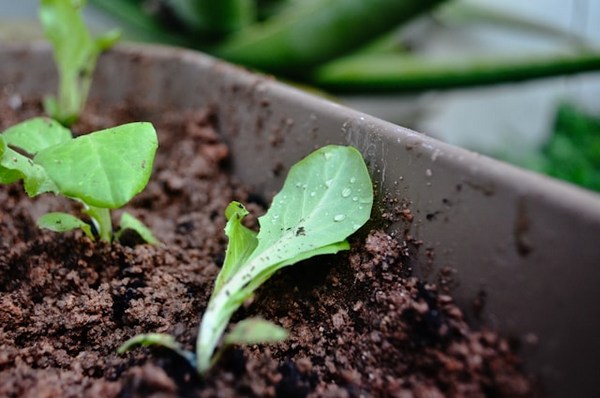
Reducing Blood Pressure through Regular Gardening Activities
One of the key heart-healthy benefits of gardening is its ability to help reduce blood pressure. Regular physical activity, such as gardening, can lower blood pressure levels and contribute to overall cardiovascular health. Gardening involves moderate-intensity exercises, such as digging, planting, and weeding, that can help increase heart rate and improve circulation.
Additionally, spending time outdoors in a garden setting can have a calming effect, reducing stress and anxiety, which in turn can lead to lower blood pressure levels.
If you’re new to gardening or need guidance on creating a heart-healthy garden, visit your local garden center and seek advice from knowledgeable staff who can help you select the right plants and provide tips for maintaining a healthy garden environment.
How Gardening Improves Cardiovascular Health
In addition to reducing blood pressure, gardening can also improve cardiovascular health. Engaging in activities such as planting, watering, and pruning requires physical effort and movement, which helps strengthen the heart and improve circulation.
Furthermore, spending time outdoors in a garden setting exposes you to fresh air and sunlight, both of which are beneficial for cardiovascular health. The presence of outdoor plants and patio furniture creates a relaxing environment that encourages physical activity and promotes overall well-being.
Tending to your flower beds, maintaining your vegetable garden, or simply enjoying the beauty of your outdoor space, gardening offers a heart-healthy way to connect with nature and improve your cardiovascular health.
Gardening for Strength, Stamina, and Flexibility
In addition to the heart-healthy benefits of gardening, engaging in regular gardening activities can also contribute to building muscle, enhancing physical endurance, and improving flexibility and balance.
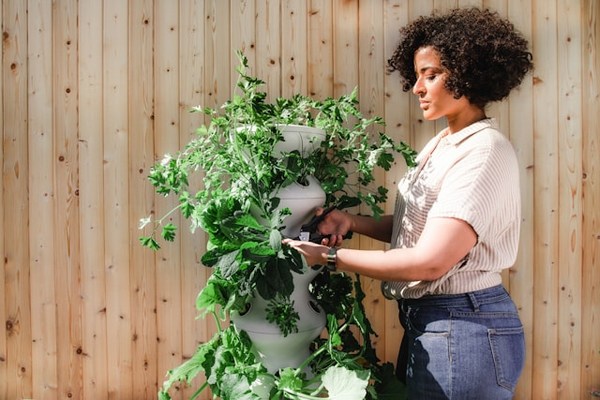
Lifting pots, digging holes, or bending and stretching to reach plants, gardening provides a full-body workout that can lead to increased strength, improved stamina, and enhanced flexibility.
Building Muscle and Enhancing Physical Endurance
Gardening involves a variety of physical activities that can help build muscle and enhance physical endurance. Here are some ways in which gardening can contribute to improving your strength and stamina:
- Digging and turning soil: These activities require the use of upper body and core muscles, helping to build strength and endurance.
- Lifting and carrying pots: Moving heavy pots and containers can help strengthen your arm, shoulder, and back muscles.
- Watering and pruning plants: Reaching for plants and carrying watering cans or pruning tools can engage your upper body muscles and improve physical endurance.
The Role of Gardening in Maintaining Flexibility and Balance
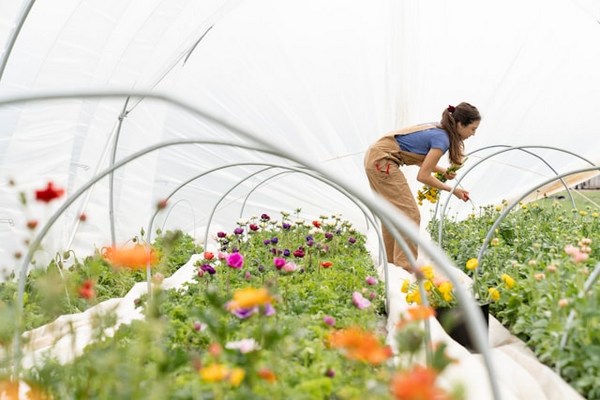
Flexibility and balance are essential for overall physical fitness and can help prevent injuries. Gardening provides an opportunity to improve these aspects of fitness. Here’s how gardening can help maintain flexibility and balance:
- Bending and stretching: Gardening activities often involve bending down to plant or weed, as well as reaching up to prune or harvest fruit from trees. These movements can help improve flexibility and range of motion.
- Uneven terrain: Working in a garden with uneven ground can challenge your balance and help improve stability and coordination.
Whether you have fruit trees in your garden or are simply maintaining a flower bed, gardening provides a natural way to engage in exercises that promote flexibility and balance.
Mental Health and Emotional Well-being through Gardening
In addition to the physical benefits, gardening also has a positive impact on mental health and emotional well-being. By spending time in the garden and connecting with nature, individuals can experience a sense of tranquility and find solace in the serenity of green spaces.
Stress Reduction and the Serenity of Green Spaces
Gardening provides an opportunity to reduce stress and find peace in the serenity of green spaces and decor. Spending time in nature has been shown to have a calming effect on the mind and body.
Tending to your plants, enjoying the fragrance of flowers, or simply taking in the sights and sounds of your garden, gardening can provide a much-needed escape from the stresses of daily life, especially during times of drought.
Boosting Mood and Self-Esteem with Every Planting

Gardening has the power to boost mood and enhance self-esteem with every plant you nurture. Planting and caring for a garden allows individuals to take part in the growth and development of living organisms, which can bring a sense of accomplishment and pride.
Selecting the perfect plants and providing them with the highest quality care, individuals can witness the fruits of their labor and experience a sense of joy and satisfaction. Gardening also offers an opportunity for creativity and self-expression, allowing individuals to create a unique and beautiful outdoor space that reflects their personality and style.
Planting flowers, growing vegetables, or cultivating a lush green landscape, gardening can boost your mood and self-esteem with every planting.
Gardening as a Form of Exercise
In addition to its mental and emotional benefits, gardening can also be considered a form of exercise.
Calories Burned During Common Gardening Tasks
Gardening activities can help burn calories and contribute to weight management. The number of calories burned during gardening tasks can vary depending on the intensity and duration of the activity.
Here is a table showing the estimated calories burned during common gardening tasks:
| Gardening Task | Average Calories Burned per Hour |
| Landscaping (digging, raking) | 250-350 |
| Planting flowers or shrubs | 200-300 |
| Weeding | 200-300 |
| Watering plants | 100-200 |
| Mowing the lawn | 200-400 |
| Trimming hedges | 250-350 |
By engaging in these gardening tasks regularly, you can burn calories, increase your heart rate, and improve your overall fitness. Gardening can be a fun way to stay active and incorporate physical activity into your daily routine.
Comparing Gardening to Traditional Forms of Exercise
Gardening can provide physical benefits comparable to traditional forms of exercise. While gardening may not be as intense as running or weightlifting, it still offers a range of physical activities that engage various muscle groups and contribute to overall fitness.
The repetitive motions involved in planting, weeding, and maintaining a garden can help improve strength, endurance, and flexibility. Additionally, gardening requires constant movement and can provide a cardio workout, especially when performing tasks such as mowing the lawn or laying sod.
Incorporating gardening into your fitness routine, you can enjoy the benefits of exercise while enjoying the beauty and satisfaction of creating and maintaining a garden filled with perennials, flowers, and other plants.
Nutritional Advantages of Home-Grown Produce
In addition to the physical activity and mental health benefits, gardening also offers nutritional advantages through home-grown produce. In this section, we will explore the health benefits of eating fresh, organic vegetables and fruits from your own garden. From greenhouse gardening to encouraging a healthy diet, we will highlight how gardening can contribute to a nutritious lifestyle.
The Health Benefits of Eating Fresh, Organic Vegetables and Fruits
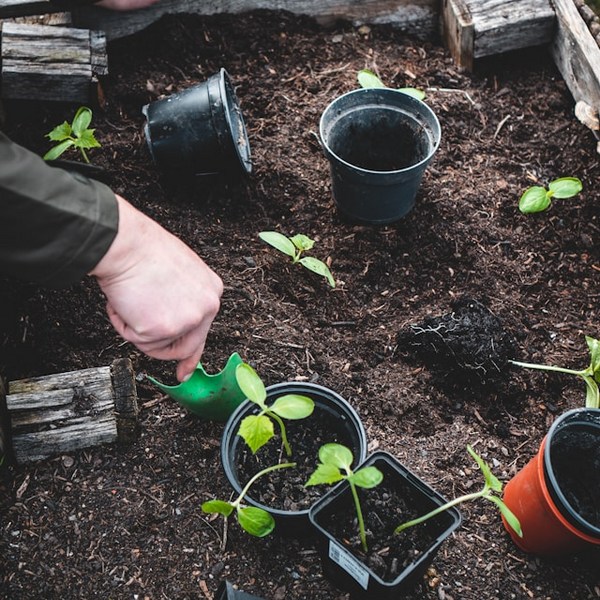
Home-grown produce offers a range of health benefits compared to store-bought fruits and vegetables. By growing your own food, you have control over the use of pesticides and can ensure that your produce is free from harmful chemicals.
Gardening in a greenhouse can provide a controlled environment that allows for year-round cultivation and access to fresh, organic produce. Home-grown vegetables and fruits are also richer in nutrients, as they are harvested at peak ripeness and consumed soon after.
Incorporating fresh, organic vegetables and fruits from your garden into your diet, you can enjoy the health benefits of a nutritious and wholesome lifestyle.
Encouraging a Healthy Diet through Gardening
Gardening can play a significant role in encouraging a healthy diet. By growing your own vegetables and fruits, you have access to the highest quality produce available. From choosing the best seeds or seedlings to nurturing your plants with proper care, you can ensure that the fruits and vegetables you harvest from your garden are of the highest quality.
The freshness and flavor of home-grown produce can inspire you to incorporate more fruits and vegetables into your meals, leading to a healthier and more balanced diet.
Additionally, the sense of pride and satisfaction that comes from growing your own food can further motivate you to make nutritious choices and prioritize your well-being.
Enhancing Immune Function with Dirt
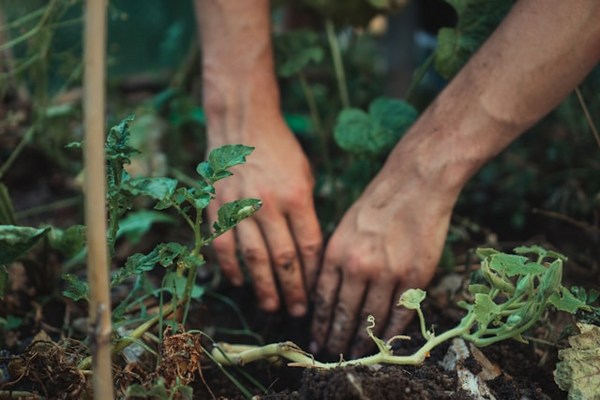
In addition to the physical and mental health benefits, gardening can also enhance immune function. In this section, we will explore the surprising health benefits of soil microbes and how outdoor gardening activities contribute to increased vitamin D levels.
By getting your hands dirty in the garden, you can strengthen your immune system and improve overall well-being.
The Surprising Health Benefits of Soil Microbes
Gardening exposes individuals to soil microbes, which can have a positive impact on immune function. Soil contains a diverse community of microorganisms that play a vital role in nutrient cycling and plant health.
When individuals come into contact with these soil microbes, their immune system is stimulated, leading to a stronger immune response and increased resistance to infections and diseases. Gardening provides an opportunity to connect with nature and the beneficial microbes present in the soil, promoting a healthy immune system and overall well-being.
So don’t be afraid to get your hands dirty and embrace the health benefits that gardening can offer.
Vitamin D and Outdoor Gardening Activities
Spending time outdoors in the garden can also contribute to increased vitamin D levels. Vitamin D is essential for bone health, immune function, and overall well-being. When exposed to sunlight, our skin produces vitamin D naturally.
By performing outdoor gardening activities, individuals can take advantage of the sun’s rays and increase their vitamin D levels. Whether you’re planting, weeding, or harvesting in your garden, make sure to spend some time in the sun and soak up the benefits of vitamin D.
A Therapeutic Activity for All Ages

Gardening is a therapeutic activity that can be enjoyed by individuals of all ages. In this section, we will explore how gardening can promote physical health and an active lifestyle for families as well as seniors. Whether you’re gardening as a family or maintaining an active lifestyle in your golden years, gardening offers a range of benefits for individuals of all ages.
Gardening as a Family Activity Promoting Physical Health
Gardening can be a wonderful family activity that promotes physical health. By involving children in gardening activities, families can instill a love for nature, encourage physical activity, and foster a sense of responsibility. Gardening requires movement, coordination, and strength, making it an ideal activity for children to develop their motor skills and physical abilities.
Whether it’s planting seeds, watering plants, or harvesting fruits and vegetables, gardening provides an opportunity for families to spend quality time together while improving their physical health and well-being.
Gardening for Seniors: A Way to Stay Active and Engaged
Gardening is a great way for seniors to stay active and engaged. It provides a purposeful activity that promotes physical movement and mental stimulation. Whether it’s tending to a small container garden or maintaining a larger outdoor space, gardening allows seniors to enjoy the benefits of physical activity while connecting with nature.
Gardening can also provide a sense of accomplishment and satisfaction, boosting self-esteem and overall well-being. For seniors looking to stay active and maintain an active lifestyle, gardening provides a low-impact and enjoyable way to engage in physical activity and enjoy the beauty of nature.
Conclusion
In conclusion, gardening offers a myriad of physical and mental health benefits for individuals of all ages. From lowering blood pressure and improving cardiovascular health to reducing stress and boosting mood, the act of tending to plants can significantly enhance overall well-being. Not only does gardening provide a form of exercise that promotes strength, stamina, and flexibility, but it also encourages a healthy diet through home-grown produce. Additionally, engaging in gardening activities can enhance immune function through exposure to soil microbes and vitamin D. Embracing gardening as a therapeutic activity can contribute to a healthier lifestyle and a happier mindset.
Frequently Asked Questions
What is the Best Time of Day for Gardening to Optimize Health Benefits?
The best time of day for gardening to optimize health benefits is in the morning or late afternoon when the weather is cooler. Gardening in the early morning or evening allows for more comfortable working conditions and minimizes the risk of dehydration or heat-related illnesses. It’s important to stay hydrated and take breaks when necessary, especially during hot summer months. By gardening during the cooler parts of the day, you can enjoy the physical and mental health benefits of gardening while minimizing potential risks.
How Can Beginners Start a Health-focused Garden?
Beginners can start a health-focused garden by choosing easy-to-grow plants, using proper gardening techniques, and seeking advice from knowledgeable experts. Start small with a few plants that are suitable for your climate and gardening experience. Research plant care requirements and follow gardening best practices to create a healthy and productive garden environment. Additionally, seek guidance from local garden centers or experienced gardeners who can provide tips and recommendations based on your specific gardening goals.
Research
Chalmin-Pui, L.S., Griffiths, A., Roe, J., Heaton, T. and Cameron, R., 2021. Why garden?–Attitudes and the perceived health benefits of home gardening. Cities, 112, p.103118.
Clatworthy, J., Hinds, J. and M. Camic, P., 2013. Gardening as a mental health intervention: A review. Mental Health Review Journal, 18(4), pp.214-225.
Hawkins, J.L., Mercer, J., Thirlaway, K.J. and Clayton, D.A., 2013. “Doing” gardening and “being” at the allotment site: Exploring the benefits of allotment gardening for stress reduction and healthy aging. Ecopsychology, 5(2), pp.110-125.
Koay, W.I. and Dillon, D., 2020. Community gardening: Stress, well-being, and resilience potentials. International Journal of Environmental Research and Public Health, 17(18), p.6740.
Kunpeuk, W., Spence, W., Phulkerd, S., Suphanchaimat, R. and Pitayarangsarit, S., 2020. The impact of gardening on nutrition and physical health outcomes: a systematic review and meta-analysis. Health Promotion International, 35(2), pp.397-408.
Nishii, J., 2011. The therapeutic benefits of gardening: Cultivating health through interaction with nature. Alliant International University.
Park, S.A., Lee, A.Y., Son, K.C., Lee, W.L. and Kim, D.S., 2016. Gardening intervention for physical and psychological health benefits in elderly women at community centers. HortTechnology, 26(4), pp.474-483.
Scott, T.L., Masser, B.M. and Pachana, N.A., 2015. Exploring the health and wellbeing benefits of gardening for older adults. Ageing & Society, 35(10), pp.2176-2200.
Soga, M., Gaston, K.J. and Yamaura, Y., 2017. Gardening is beneficial for health: A meta-analysis. Preventive medicine reports, 5, pp.92-99.
Soga, M., Cox, D.T., Yamaura, Y., Gaston, K.J., Kurisu, K. and Hanaki, K., 2017. Health benefits of urban allotment gardening: Improved physical and psychological well-being and social integration. International journal of environmental research and public health, 14(1), p.71.
Wood, C.J., Pretty, J. and Griffin, M., 2016. A case–control study of the health and well-being benefits of allotment gardening. Journal of Public Health, 38(3), pp.e336-e344.
Quick Start Guide to Composting: Turning Waste into Gold
Key Highlights Composting transforms organic waste into nutrient-rich soil, reducing landfill waste and methane emissions. It enhances soil health, promotes…
Pollinator Friendly Gardens: Attract Butterflies & Bees
Key Takeaways Pollinators like butterflies and bees are essential for healthy gardens and ecosystems. A pollinator-friendly garden includes a variety…
Xeriscaping 101: Easy Steps for Beginners
Key Takeaways: Xeriscaping focuses on water-efficient landscaping, reducing the need for irrigation. Native and drought-tolerant plants are key components of…
9 Natural Ways to Repel Snails & Slugs in Your Garden
Key Highlights Coffee grounds, eggshells, and diatomaceous earth are effective natural repellents for snails and slugs in the garden. Beer…
Medicinal Plants: Your Healing Home Garden
Key Takeaways Growing medicinal plants at home provides easy access to natural remedies. Many medicinal plants are low-maintenance and thrive…
Organic Gardening: Essential Tips for a Chemical-Free Garden
Key Highlights Natural Techniques: Use composting, companion planting, and beneficial insects for fertility and pest control. Organic Methods: Grow plants…
